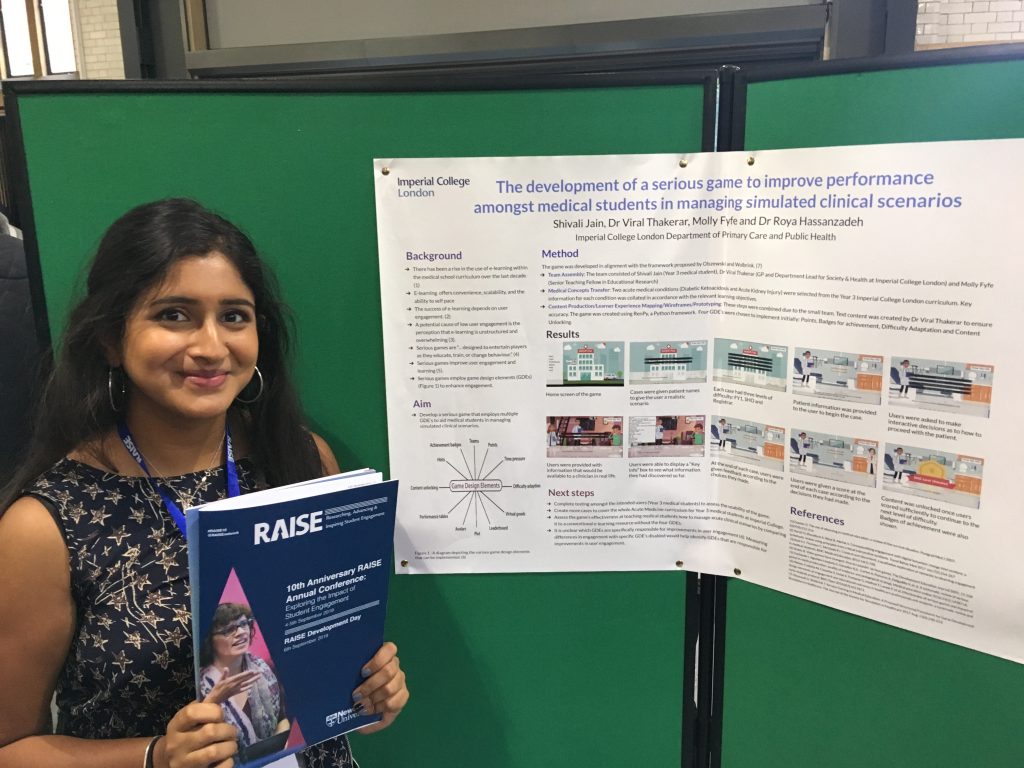StudentShapers and the annual RAISE 2019 conference
Dr Mike Streule, Director, StudentShapers
Early September sees the annual RAISE (Researching, Advancing and Inspiring Student Engagement) conference, this time held at the Newcastle University. Two interesting keynotes provided further food for thought and debate, especially as StudentShapers at Imperial develops beyond its initial stages, and our new curricula are implemented.
An interesting debate by Bruce MacFarlane and Colin Bryson focussed on the effects – both positive and negative – of Student Engagement policy and practices. Such practices and the inevitable measures that follow can be all too simple and ineffective at heart and completely fail to recognise that students are adults, are attending Higher Education essentially in a voluntary capacity and are expected to be ‘independent’ learners. Yet, increasingly we see practices such as attendance monitoring, measurements of student library access, ‘forced’ participation in class or group work as measures of student ‘engagement’. But of course students could be highly engaged in their studies in different ways, and ways that cannot be easily measured or seen – does forcing students to ‘conform’ into certain ways of learning inhibit their academic freedom to engage in various ways that Higher Education is supposed to cherish? Moreover linking interventions with increases in ‘engagement’ is therefore highly speculative and we, as educators need to be reflective and considering of interventions we might make to drive increases in ‘engagement’ without hidden and unintended consequences.
A second keynote by Cathy Bovill considered student partnership practice. Many institutions now support student partnership initiatives in one way or another. Certainly from other talks and discussions over the conference I was proud to represent such a programme that is so well supported and is part of an institutional Learning and Teaching agenda. However whilst StudentShapers still does more than many in terms of the number of students we work with and the range of projects we support, and even though there are recognised broader ‘knock-on’ effects to broader student communities, it is still a relatively exclusive practice. As an institution we need to consider how we can teach in a more ‘partnered’ way; so that whole classes and cohorts can experience the academic freedom (noted above) to be part of, and engaged with a learning community in which their lecturers or instructors are also part, i.e. in partnership. At Imperial we have some excellent areas where we excel in this and over the coming months we will be putting together a project call to invite staff to work with students to develop their teaching with a greater emphasis on a whole-class partnership. Changing how our students are positioned in our community is part of the Learning and Teaching Strategy – but it is a process which takes time – see this short read for an excellent summary. Such a change requires providing multiple ways and approaches for partnership to be adopted – something which StudentShapers will support as the Learning and Teaching strategy advances and our education becomes more developed in this respect.
The conference also marked a first of (hopefully) many, with our StudentShapers project student Shivali Jain from the Faculty of Medicine presenting her recent project ‘The impact of a serious game compared to conventional e-learning on performance in managing simulated clinical scenarios’. The poster provided great interest from delegates, and an ‘almost-winner’ of the student poster award.
